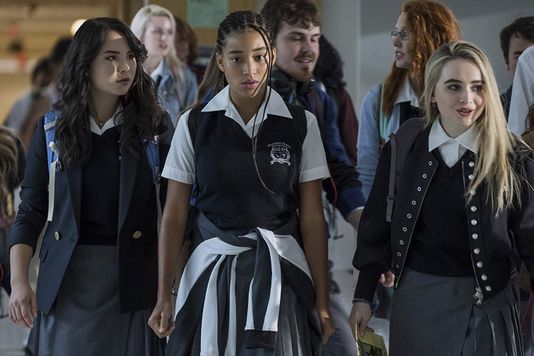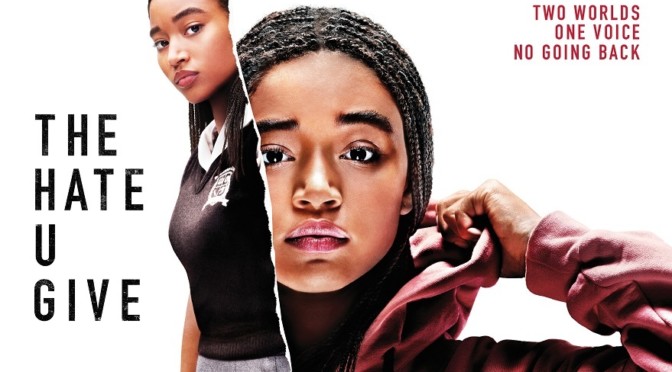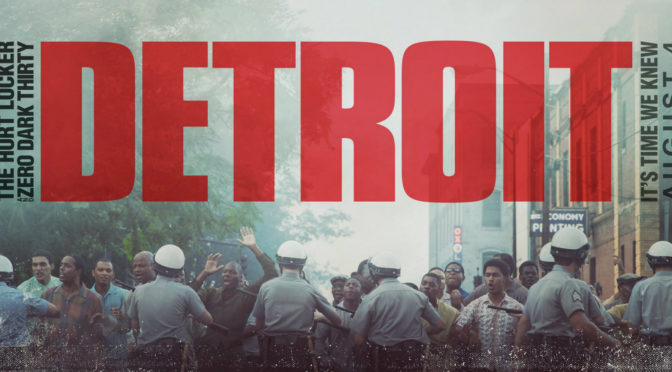Whenever movies like this are released, the distinction has to be made between the film and the message the film is trying to communicate. The two exist together but are often, as is the case here, of differing quality. Starr (Amandla Stenberg; Everything, Everything) is a 16 year old black girl that lives a poor, crime-ridden, predominantly black neighborhood, but goes to a private, mostly white high school. When coming home from a party with her childhood friend Khalil (Algee Smith; Detroit), she is stopped by a white police officer. He asks her friend, who was driving, to step outside and stay still while he checks their license plates. Khalil doesn’t listen and is shot dead when reaching for his hairbrush. The shooting and subsequent trial create unrest in the community and divide Starr as she wrestles with her role and the different reactions she receives from her friends at school and her family.
With a clear point to get across, the script wastes no time on subtlety. The characters shown and the way they fit together fall into easy stereotypes. The good kid turned drug dealer to pay for his grandmother’s cancer treatment, the former gangster gone straight to raise his family, the conceited rich kids, and more clichés are stacked together to remove any chance of an audience member having a thought that strays from the film’s goals. With every element of the plot so conspicuous in its intentions, the machinations of the narrative are clear and the artifice of the story becomes apparent. The writing can be manipulative to the point that it prevents the characters and the plot from feeling realistic and lessens the film’s impact.

There are additional problems that stem from the transition from book to film. Angie Thomas’s novel relies heavily on voiceover to show Starr’s inner thoughts. When used to depict the split personality Starr is forced to adopt just to fit in, this device works well. We are able to understand and sympathize with her lack of identity due to the two worlds she inhabits and how it can be exhausting. Sadly, the film doesn’t just limit voiceover to this purpose. It’s often used for exposition dumps. This is especially egregious at the film’s conclusion where Starr’s narration ties up every loose end in an act of blatant telling, rather than showing.
At its heart, the film wants to spread a message against hate. The title come’s from rapper Tupac Shakur’s “THUG LIFE” adage and the story seeks to humanize the frequent news headlines of killings and police brutality. Its greatest weapon are its the actors. Stenberg has an incredibly expressive face and she uses it to believably convey a broad range of emotions. Her father, played by Russell Hornsby (Fences), is a tough but loving patriarch. His strictness comes from learning difficult lessons and wanting to ensure his children never have to do the same. When seen together, Starr and her family create the emotional center director George Tillman Jr. (Barbershop) was likely intending. They show how regular, good people cope when subjected to adversity caused inherent systemic flaws present in their neighborhoods and society as a whole. Had the film carried this humanist angle in the script, it would have been influential without feeling calculated. As it stands, The Hate U Give has strong performances, but a manipulative plot that weakens the effectiveness of its message.

3/5 stars.



